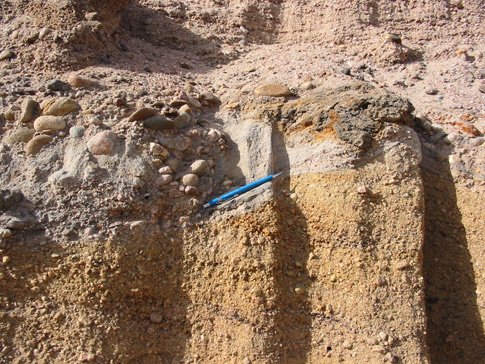U.S. warns workers on cancer-causing mineral erionite
4 min read
Federal health officials are calling for protective measures at job sites where workers may be exposed to erionite, a cancer-causing mineral similar to asbestos that is found in rock and soil in at least a dozen western states.
An advisory published Tuesdayby the National Institute for Occupational Safety and Health recommended a series of steps to prevent employee exposure to eronite fibers at sites such as gravel quarries and road projects. The NIOSH alert noted that erionite was responsible for “remarkably high” rates of mesothelioma, a lethal form of cancer that devastated several Turkish villages where erionite was concentrated in rock and soil.
Erionite fibers pose an inhalation hazard similar to asbestos, but available research suggests erionite is more dangerous.
As reported in October by FairWarning and msnbc.com, authorities have long known that erionite is widespread in the West but haven’t investigated the potential risks, apparently believing there was little chance of human exposure.
As a result, amid an expansion of roads, pipelines, and power lines in remote areas, erionite remains unregulated, and federal agencies until now have failed to alert land-use officials, developers and residents so they might take precautions.
About 30 officials and scientists from federal health and environmental agencies last month held a day-long erionite workshop in North Carolina. “At a minimum, we can begin to start to educate the public and policymakers,” said Dr. Aubrey Miller, a senior medical advisor at the National Institute of Environmental Health Sciences, who chaired the meeting. “I certainly don’t want to count bodies later.”
The steps recommended Tuesday by NIOSH, though purely voluntary, are a first attempt to address potential occupational risks.
“From the evidence at hand …it’s prudent and it’s reasonable to approach controlling exposures as one would control asbestos,”said NIOSH spokesman Fred Blosser.
Erionite, a member of the zeolite family of minerals, is formed from volcanic ash that has been weathered by water. Like asbestos, it is harmless until it is disturbed, and the microscopic, needle-like fibers waft into the air.
Until the late 1970s, when the mesothelioma epidemic was first reported in Turkey, asbestos was thought to be the only cause of the rare cancer. But erionite was found to be the culprit. In the hardest-hit villages, where 40 percent to 50 percent of all deaths were caused by mesothelioma, erionite was abundant in soil and rock, and was used to build homes.
Animal studies showed erionite to be 100 to 800 times more carcinogenic than asbestos and, according to a scientific paper, “almost certainly the most toxic naturally occurring fibrous mineral known.”
The NIOSH alert acknowledged the paucity of data on erionite risks in the U.S. According to co-authors David Weissman, director of the agency’s division of respiratory disease studies, and Max Kiefer, director the NIOSH’s western states office, “little is known about exposures currently experienced by U.S. workers.” But it said there is some evidence of health effects among road construction workers exposed to erionite-containing gravel or soil.
It cited studies in North Dakota. In 2005, it was revealed that erionite-laden gravel mined in the western part of the state had been used to cover hundreds of miles of unpaved roads.
Mesothelioma develops decades after initial exposure, and no proof has emerged of high rates of the disease in North Dakota. However, air sampling along the gravel roadways and in vehicles, including inside school buses, revealed erionite level similar to those in some stricken Turkish villages. And a preliminary health study found that two road maintenance workers had mild lung scarring consistent with breathing mineral fibers.
In the absence of clear risk data and regulations, however, use of erionite-containing gravel has continued in the state. The North Dakota Department of Transportation has banned its use in state road projects, but some local governments and private companies rely on it still.
Complicating the picture, the state is in the midst of one of the greatest oil booms in U.S. history, with a huge spike in truck traffic tearing up unpaved roads and increasing the need for maintenance. To use only erionite-free gravel to patch the roads would mean hauling from 40 miles away, which is “cost prohibitive,” Reinhard Hauck, the auditor and treasurer of Dunn County, N.D., told FairWarning. Local officials are “behind the 8 ball constantly trying to figure out how to maintain the infrastructure we have.”
Scott Radig, director of waste management for the state Department of Health, said the agency has provided advice to energy companies and construction contractors on controlling dust and avoiding gravel with erionite content. But Radig said such steps are purely voluntary, and he doesn’t know how many companies comply.
The NIOSH advisory listed more than a dozen measures to control potential hazards, including employee training and determining if erionite-containing material is present before beginning work.
Other steps included wetting soil and rock to reduce dust; using respirators and other protective equipment; showering and changing clothes before leaving work; and ensuring work clothes and boots are left at work to prevent hazardous fibers from being brought home.






